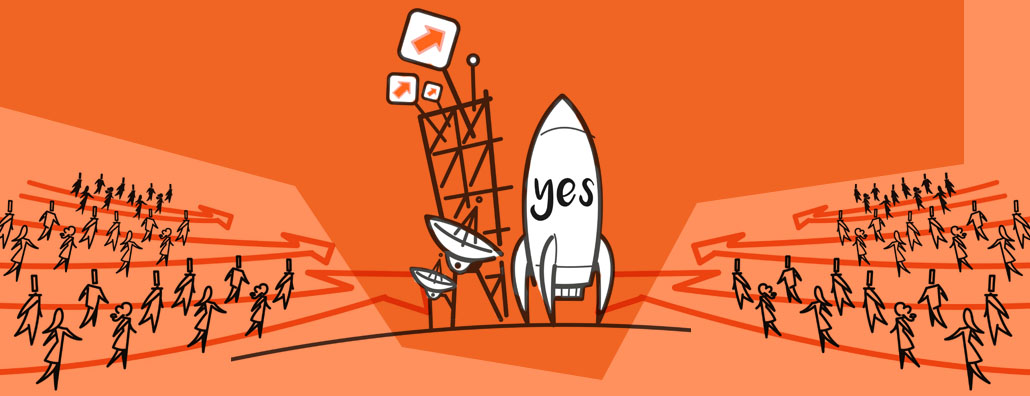Appreciative inquiry is a methodology to transform the culture and business of organizations that work simultaneously. At Madavi, we change the way organizations change; and for that, instead of analyzing the problems, we inquire about what we call “Peak Moments”.
A Summit is a collaborative event for many: 20, 50, 100, 200 or more people. When celebrated, all the people necessary to succeed and create collective action towards an attractive future image meet at the same time.
At the first Summit we experience the power to “Change the way we change”. Interviews are conducted in pairs, in what we call unlikely couples. For example, if the case is to improve teamwork, the best stories of teamwork would be investigated, those moments where the performance of people has been very high, moments where their protagonists have felt proud.
Throughout our career, we have held Summits and Mini-Summits with a number of companies including LinkedIn, Danone, Frit Ravich, Evian, Weleda, Mahou San Miguel, Volvo, Pepe Jeans, Eroski, Tactic Consulting, The Motion, Zurich, Inspiralia, Danone, Repsol, Congalsa, Meta 4 and Sukia, among others.
The Three stages of a Summit
The development of the Summits takes place during three stages: Pre-Summit, Summit and Post-Summit.
At the Pre-Summit the sponsors, a small group of people who have a change agenda and are convinced that an appreciative process is the best way to change it, delineate the meaning of the process: they define the tasks of the Summit, the framework, macro objectives and create the team to prepare it. The team defines the affirmative topic, designs the process, selects attendees and is responsible for logistics and communication.
The Summit is seen as the great day . All the necessary stakeholders are in the room, preparing themselves for the unconditionally positive path they are going to take during the Summit, which can last between two and three days depending on their objective. During the sessions strengths are raised and aligned in the form of action towards opportunities.
In the Post-Summit, the organization is anticipated and the necessary impetus is given to help the teams succeed and promote cultural change. We already know the projects, the action, the teams and the necessary resources. It is time to adjust the planning to reality: Communication channels, approvals, supports, resources, time for volunteers and transformative leadership.

